Students from HSE and Other Universities Carry Out Research Expedition at New Chersonesos
As part of the Rediscovering Russia student expedition programme, HSE University organised a research trip under the framework of the School for Young Humanities Scholars to the New Chersonesos museum and church complex in Sevastopol. The results of this expedition will form the basis for proposals on educational projects aimed at shaping young people’s historical memory of the role of Chersonesos, Crimea, and the Byzantine legacy in the history of Russian culture and statehood.
The expedition took place on September 13–20 and involved 30 participants—students from HSE and other universities selected through an application process. The expeditions are supported by Rosmolodezh’s ‘More than a Trip’ programme and the ‘Russia—Land of Opportunity’ presidential platform.
During the trip, students from across Russia conducted a sociological study of young people’s historical memory regarding the Baptism of Rus’ by Prince Vladimir and the influence of Orthodoxy and Byzantium on the formation of the Russian civilisation. They also analysed existing practices and projects of the New Chersonesos museum and church complex.
Chersonesos is the site where, in 988, Prince Vladimir was baptised together with his army and married the sister of the Byzantine emperor. Then he returned to Kiev as a Christian and subsequently baptised the inhabitants of Kiev and Novgorod, the largest cities in Rus’. New Chersonesos is a museum and church complex covering 22.4 hectares. Its territory includes museums of Christianity, Crimea and Novorossiya, Antiquity and Byzantium; an archaeological park; an amphitheatre; and a reconstructed Byzantine quarter with a mint, an ancient villa, craft workshops, and a winemaker’s estate.
In addition, students took part in an educational intensive course organised by the School for Young Humanities Scholars Over the course of a week, they attended lectures, met with clergy, and went on guided tours.
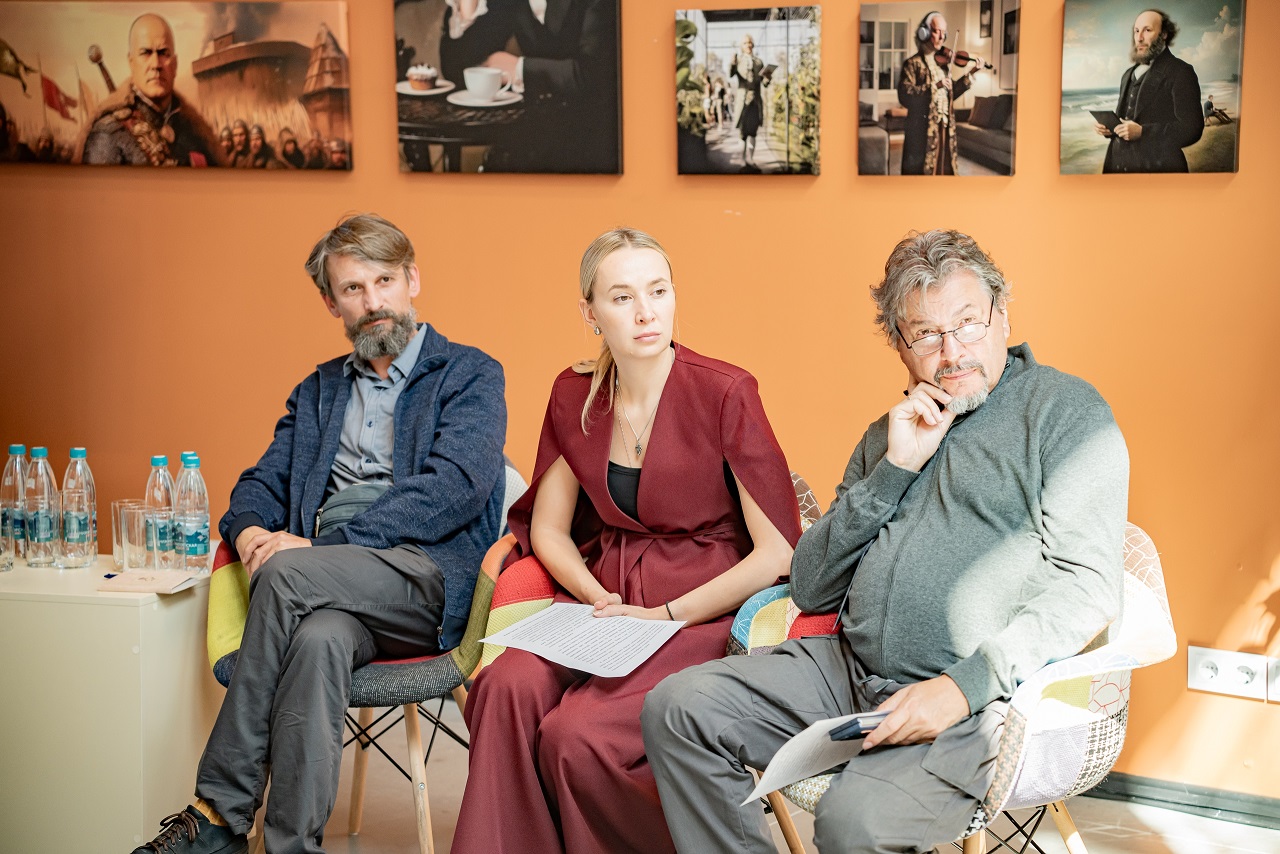
‘I was delighted by the students’ interest in the historical significance of New Chersonesos and by the enthusiasm with which they engaged in the research. In a short time, they completed a large volume of work and launched an important applied study. I hope the process will not stop here, that more visitors to the complex will be surveyed, and that more data will be collected—data that we, the staff of New Chersonesos, can rely on in our future work and planning,’ said Daria Khavchenko, Head of Event Management at the My History Charitable Foundation of the New Chersonesos museum and church complex, and Head of the Tochka Opory Crimean Youth Centres.
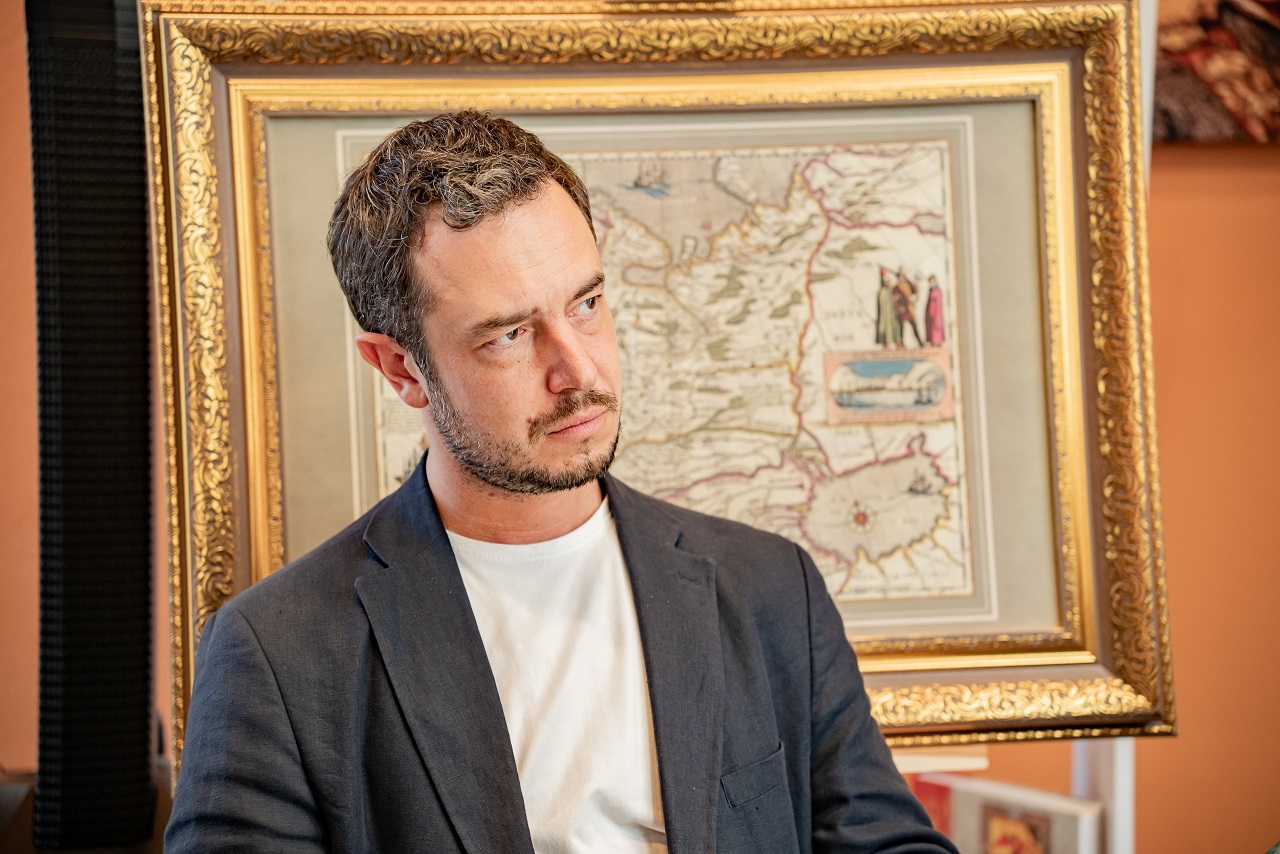
Dmitry Zemtsov, HSE Vice Rector, noted that this was the first project of the Rediscovering Russia programme and the School for Young Humanities Scholars. ‘We conceived the expeditions as an opportunity for students to discover their own country and put part of their soul into it. We managed to hold such an expedition here, in Chersonesos, where Russia inherited the legacy of the Roman (Byzantine) Empire and adopted Orthodoxy. And from the students’ reports, from the look in their eyes, I could see that this was also very important for them. They truly felt the spirit of this place and came to love it sincerely. I am sure we will continue with these formats, bringing more young researchers here to contribute to Chersonesos. It is a remarkable place,’ he stressed.
The School for Young Humanities Scholars’ session at the New Chersonesos site, held jointly with HSE University, was a vivid example of the synthesis of education, science, and practice, according to Natalia Karmazina, Vice Rector of Crimean Federal University.
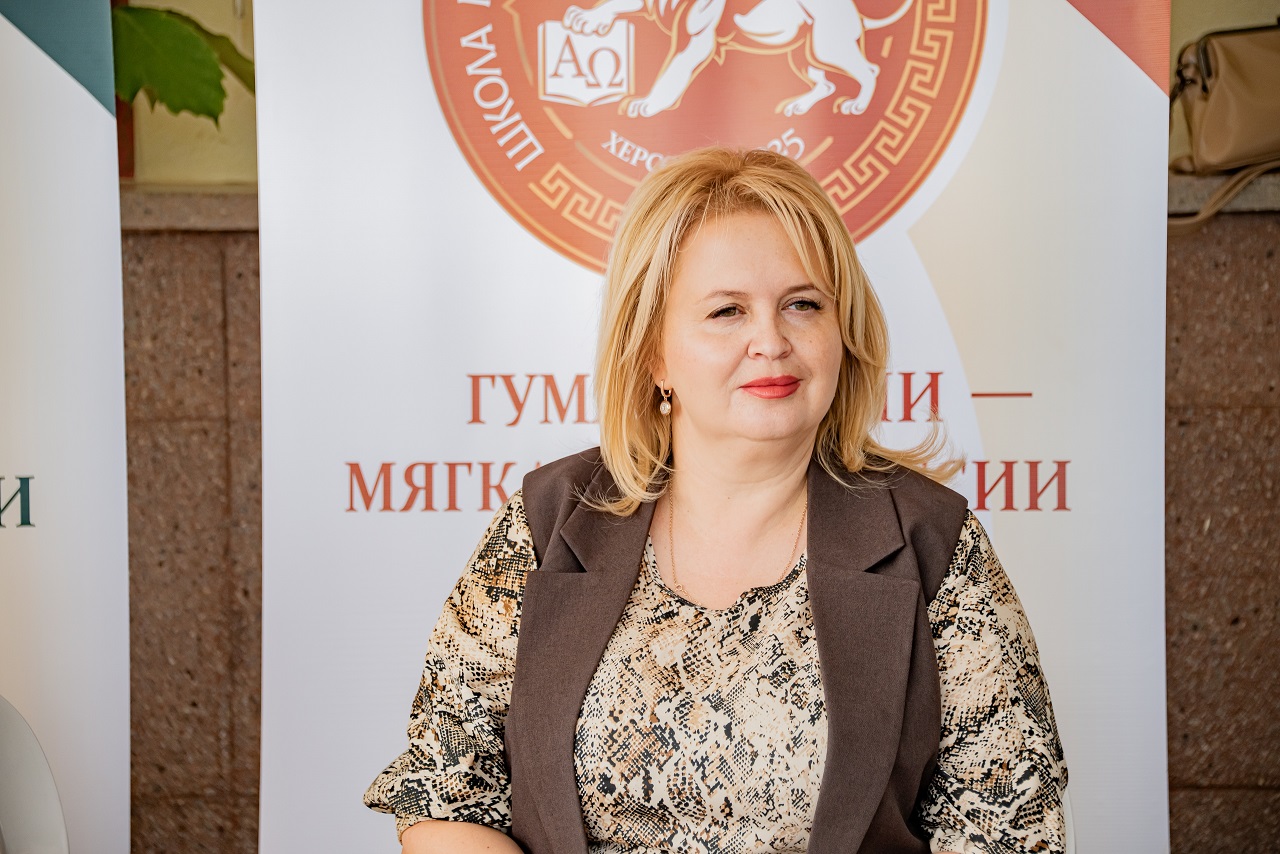
‘It was important for us to create an environment where students could apply theoretical knowledge in real conditions. The philosophy group explored the value foundations of the complex, the sociology group conducted fieldwork with visitors, and the media team documented the implementation of the school’s programme. We see the results in the participants’ high-quality projects, their professional growth, and a well-tested model of cooperation between the university and cultural institutions. This experience confirms the effectiveness of a practice-oriented approach to training a new generation of humanities scholars,’ she noted.
Participants of the expedition shared their impressions of working at the New Chersonesos museum and church complex.
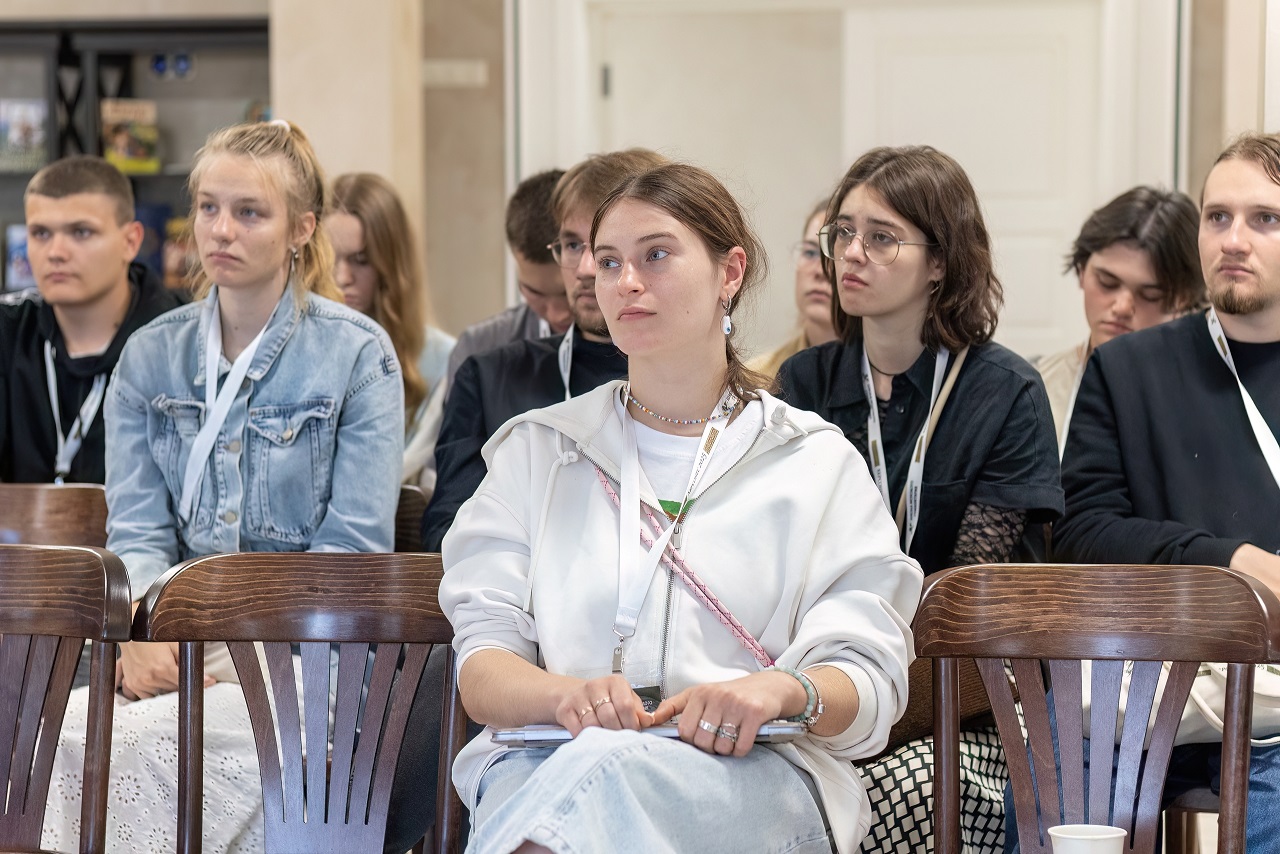
‘Our main task in the media group is to translate the vast layers of history, archaeology, and spirituality into formats that are accessible and engaging for young people,’ said Vitalia Prosyanik, a second-year master’s student on the Interactive Media and Digital Industries programme at HSE University. ‘We, the media team, are in constant contact with philosophers and sociologists, which allows us to see the project from different angles—from the deep meanings embedded by the creators of the complex to practical demands. Part of our responsibility is to help plan the future of the new complex. While preparing materials, we decided to make a film about people’s lives and how they changed after encountering New Chersonesos. Every day we attended lectures, visited museums, archaeological sites, churches, and parishioners in order to collect material and prepare our project on the development of the complex. We are looking for answers to the question of how to make the site personally meaningful for everyone who engages with it—especially for those who have never been here before. Why might it interest them? Which places should they visit in order to learn more about their past, about their history? How can we unite the spiritual with the popular in the present day? We want this place to become not just a dot on the map, but a true discovery.’
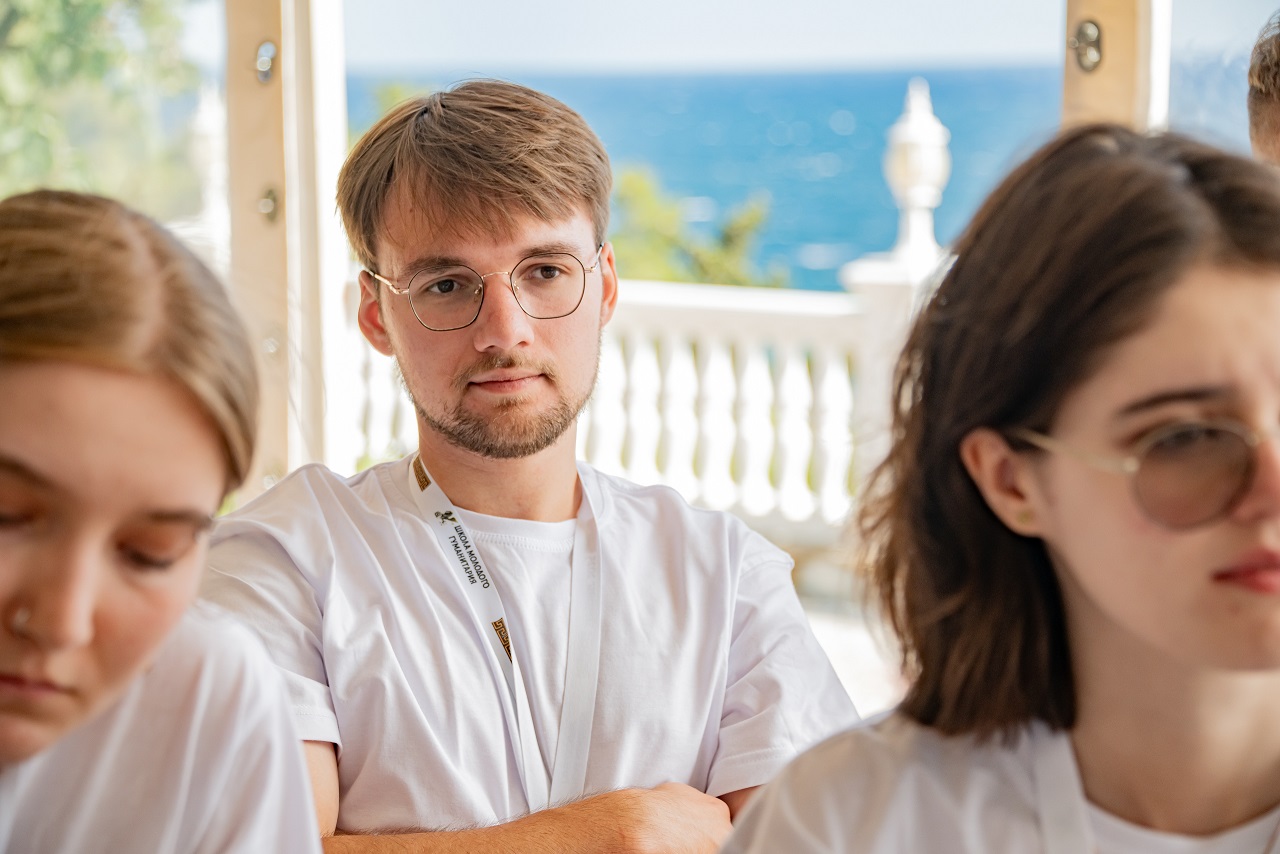
‘The New Chersonesos museum and church complex has inestimable historical significance. As a historian, I simply could not miss this trip,’ said Nikita Butyaev, a third-year student at Yaroslavl Demidov State University. ‘I would not call myself a practising believer, but I have great respect for Orthodoxy and fully recognise its immense cultural, historical, and political significance for our country. The main topics of my academic interest are medieval Rus’ architecture and medieval pilgrim guides to holy places, which are directly linked to Byzantium and the Greek world. I wanted to take part in the expedition and contribute to achieving positive results in our work.’ The student went on to explain how participants gathered opinions from experts—those shaping the meanings and policies of New Chersonesos. ‘We learnt about their contribution to this complex,’ he noted. ‘We also stayed in close contact with the sociologists—another of our teams. They shared with us how young people, the project’s target audience, express what they want to find in New Chersonesos, and what we could propose to the organisers in this respect. We considered which directions to take to ensure that the complex becomes even more attractive, more profound, and an even more historically significant project in the history of modern Russia.’

Ksenia Avdonina, a second-year master’s student in Sociology at the Financial University under the Government of the Russian Federation, was part of the team of sociologists. Their aim was to analyse the audience of New Chersonesos: its composition, interests, perceptions, and motivations. ‘We deliberately focused on young people and how to attract them to the complex,’ Ksenia added. ‘We were also interested in finding out the views of those who had never visited the site: what they knew about it and about the Baptism of Rus’—the event linked to the founding of New Chersonesos.’ The team of sociologists conducted an exploratory study with 49 respondents, using a quantitative semi-structured survey to obtain a more detailed assessment. The researchers found that young people did not fully grasp some of the narratives of the complex, particularly the religious one. Most often, young visitors came to New Chersonesos for tourist purposes. ‘They may pick up the historical context, but even here the indicator is weak: only about half (55%) recognised this narrative,’ noted Ksenia Avdonina. ‘We also observed a trend that older visitors (aged 37+) were more likely to say that New Chersonesos is connected with the Baptism of Rus’ (65%). They were also more likely to mention that religion is important in their lives. Another point we recorded: the more important religion was in a person’s life, the more clearly they understood the religious meanings of the complex. In addition, 35% of young people aged 18–25 said that their favourite elements of the complex were the zoo and the pond. This is linked to the fact that these spaces and activities are free. The main problems young visitors identified were the high cost of excursions and the lack of information boards explaining the exhibits within New Chersonesos.’
The expedition participants designed a special route for young visitors. Its key advantage lies in combining not only museums for educational enrichment but also free activities for leisure. ‘We have genuinely become enthusiastic about Chersonesos, and we plan to continue our research. During our work we formulated many hypotheses that we would like to test in the next stage, with a larger-scale survey,’ Ksenia Avdonina concluded.
From July to October 2025, the Simferopol and Crimean Diocese, with the support of Crimean Federal University, Sevastopol State University, HSE University, Kuban State University, Samara State University of Economics, Tauride Theological Seminary, Sretensky Theological Academy, and the regional branches of the Russian Society Znanie in the Republic of Crimea and Sevastopol, is holding eight sessions of the School for Young Humanities Scholars.
See also:
‘Rediscovering Russia’ Student Research Expedition Now Open for Applications
A new expedition season has begun as part of the Rediscovering Russia project. Students from all degree programmes, disciplines, and campuses of HSE University are eligible to take part. As a result, each participant may not only earn additional academic credits, but also gain valuable practical experience, develop useful skills, and contribute to the development of Russia’s regions.
First 30 Expeditions of 4th Season of ‘Rediscovering Russia’ Project Selected
The selection process for the inter-university student expedition programme ‘Rediscovering Russia’ has concluded. The programme is implemented by HSE University in collaboration with the presidential platform ‘Russia —Land of Opportunity’ and Rosmolodezh’s programme ‘More Than a Trip,’ with support from the Russian Geographical Society. The expert council has approved the first 30 expeditions, with 12 universities and 18 organisations among the winners. These expeditions will take place from April to November 2025, covering 23 regions across the country.
Testing Satellite Communication and Preserving Northern Culture: New Expeditions of ‘Rediscovering Russia’
From May to August 2024, 19 student expeditions took place across 15 regions of the country as part of the third season of the ‘Rediscovering Russia’ project. Currently, 10 more project expeditions are underway. The second stage of the application selection for autumn expeditions began in early August, with submissions open until August 16.
‘Rediscovering Russia’: HSE Students Create a Development Strategy for the Priklonsky-Rukavishnikov Estate
In mid-July 2024, 18 students from various HSE campuses (Perm, Nizhny Novgorod, Saint Petersburg, and Moscow) participated in an expedition to Nizhny Novgorod Oblast to develop elements of a promotional strategy for the Priklonsky-Rukavishnikov estate. This project was conceived as part of the School of Snow 3.0 inter-campus expedition and was the winner of the ‘Rediscovering Russia’ competition. We’d like to share the results of the expedition as well as the impressions of the participants.
First 43 Expeditions Selected for New Season of Rediscovering Russia
The competitive selection of the inter-university student expedition programme Rediscovering Russia has ended. The expeditions will take place from May to November 2024 and will cover 26 Russian regions. Students and graduates from any university countrywide, including foreigners, can apply for any expedition.
New Season of Rediscovering Russia Student Expedition Project Begins
From January 15 to February 15, the project website is accepting applications to organise and conduct expeditions for the 2024 season as part of the Rediscovering Russia project. In 2023, 1,000 students from 157 universities took part in the expeditions.
Annual Report of Rediscovering Russia Student Expedition Project for 2022 Published
The team of HSE University’s Rediscovering Russia project, with the support of the presidential platform Russia—Land of Opportunity and the More Than a Trip programme, has published an annual report on the results of the 2022 season in the format of a book. The publication includes key results, travel geography, project development plans, and much more.
Rediscovering Russia Expedition Submissions Open until June 15th
The Rediscovering Russia project invites universities, commercial and non-profit organisations to apply to organise and conduct student expeditions in 2023. Candidates can apply until June 15th, and the winning expeditions will receive financial and organisational support.
Big Challenges: Project Session on Yamal Held at HSE University
HSE University has hosted the project session ‘The Big Challenges Faced by Yamal’, whose speakers included Governor of the Yamalo-Nenets Autonomous Okrug (YaNAO) Dmitry Artyukhov, HSE University Rector Nikita Anisimov, and Vice Rector Dmitry Zemtsov. HSE University students designed concepts for expeditions to the region that they will be able to embark on in 2023–2024 as part of the ‘Rediscovering Russia’ project.
Winning Expeditions of the First Wave of the ‘Rediscovering Russia’ Project Selection Announced
The first selection of winning expeditions of the inter-university student programme ‘Rediscovering Russia’ has been completed. The programme is being implemented by HSE University together with the presidential platform ‘Russia - Land of Opportunity’ and the ‘More Than a Trip’ programme. The Expert Council approved 47 applications, with 17 universities and 23 organisations among the winners. The expeditions will take place from April to July 2023 and will cover 41 Russian regions.


